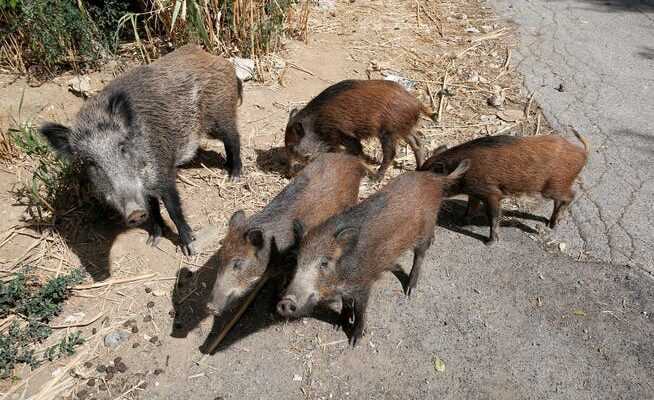Because wild boars in Rome are increasingly penetrating inhabited areas, a “red zone” is being set up around the capital.
Wild boars on the streets of Rome.
(dpa) After the occurrence of several cases of swine fever, Italy fears that the disease will spread. In Rome, where more and more wild boar have been penetrating the city in search of food for years, a “red zone” was defined at the weekend.
The area extends from the northwest to near the Vatican. Events and picnics in the great outdoors, among other things, will be banned there in the future, and disinfecting shoes will also be recommended, and special monitoring by the authorities will be announced.
African swine fever is harmless to humans, but among wild and domestic pigs it is highly contagious, incurable and almost always fatal. The Lazio region, where Rome is located, established the Red Zone and another area under surveillance to protect fattening farms in the area.
Wild boars in Rome
In the Italian capital, wild boars are a political issue: for many critics, the advance of even-toed ungulates into inhabited areas, which is regularly documented by cell phone recordings, is an indication of the inability of politicians to deal with the garbage problem in the Eternal City. Because rubbish is often not picked up on the street, the wild boar look for food there. The region is demanding that garbage cans in the red zone should therefore be fenced off.
According to the Ministry of Health, such measures, which are also being considered in the Piedmont and Liguria regions that are also affected, could not be enough. “We have to reduce the number of wild boars, there are too many in Italy,” said Under Secretary of State Andrea Costa.
Environmental and animal rights activists criticize plans to hunt wild boar on a larger scale in the future. “Turning Rome into the Wild West to hunt wild boar does not solve the problem,” said Rita Corboli from the animal welfare organization Oipa, adding: “In Rome, the problem is the waste and not the wild boar.”
